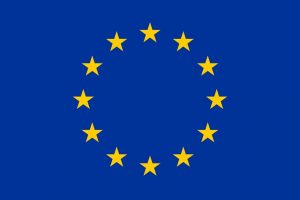NOVA School of Law participates in TRACE Horizon 2020 project to support the investigation of illicit money flows
New AI technology can empower the fight against criminals and terrorists
by tracking their illicit money flows
Prepared by Trilateral Research on behalf of the TRACE consortium
Seventeen partners from across the EU have joined forces and launched TRACE, a €7 million Horizon 2020 project to support the investigation of illicit money flows through the co-development of cutting-edge AI technology tools.
Within a three-year life span, TRACE project will provide law enforcement agencies with a solution to better identify and disrupt illicit money trails.
“It is a major challenge to develop an evidence-based and shared understanding of illicit money flows as crime networks operate on a global scale. We see, therefore, an urgent need for establishing risk profiles and intelligence based on real-time analysis of such illicit money flows. TRACE responds to this challenge by providing a flexible open-source platform to detect and analyse cross-border money trails used by criminals and terrorists”, says Professor Umut Turksen from Coventry University, Project Coordinator of TRACE.
The project was launched on 9 July 2021 by the representatives of partner organisations, including law enforcement agencies, tax authorities, research centres, universities, non-governmental organisations and industry from across Europe as well as a representative from the European Commission. The meeting provided an opportunity to discuss the contributions of different partners in relation to their areas of expertise and review the project goals, including ethics-by-design, privacy and data protection issues.
The Project
As organised crime networks operate across borders, use legal loopholes and advanced technology, it is notoriously difficult to detect and trace hidden and illicit money flows. In TRACE, partners will co‐create innovative data management solutions combined with AI analytics to enhance the capabilities of law enforcement agencies in tracing and recovering illicit money flows and generating court‐proof e‐evidence. TRACE will focus on these key aspects:
- Co-develop and validate innovative technologies to detect and analyse cross-border money flows used by criminals and terrorists
- Increase efficiency and effectiveness of information sharing among European LEAs to better respond to cross-border financial crimes
- Design and test innovative training materials for LEAs across Europe
- Maintain European societal values and fundamental rights by adopting a co-creative and ethics-by-design approach in technology development
The project will deliver a modular open-source framework for money-laundering investigations which can be tailored to meet LEA end-user needs. It will enable investigators to scrape data from databases and the world wide web in any given language; translate the text into English, analyse it and showcase the results with the help of visualisation technology. Our solution aims to increase the efficiency of information sharing among European LEAs and enhance their innovation potential in detecting and combatting money-laundering operations and financing of organised crime and terrorism.
Meet the team
The project is coordinated by Prof Umut Turksen, Coventry University (UK). Other consortium partners include Trilateral Research (UK), AIT Austrian Institute of Technology (Austria), Ertzaintza Basque local police (Spain), NOVA University of Lisbon (Portugal), Aston University (UK), Tax Justice Network (UK), CIN Consult (Austria), Proflow (Austria), PrivaNova (France), the Department of Policing at the University of Applied Sciences for Public Service in Bavaria (Germany), Vicesse – Vienna Centre for Societal Security (Austria), National Organised Crime Agency (Czech Republic), FINOPZ (UK), Tax and Customs Board (Estonia), SYSTRAN (France), Expert System Iberia (Spain).
The role of NOVA University of Lisbon
NOVA University of Lisbon participates in TRACE with NOVA School of Law and Professor Athina Sachoulidou.
With expertise in legal studies and legal research, NOVA School of Law will support the operation of the consortium by ensuring the compliance of TRACE technologies with the rule of law, human rights and other EU law standards, particularly in the area of data protection and (electronic) evidence collection. To this end, it will lead the project’s ethical, data protection and social impact assessment. In collaboration with other partners, it will also prepare a guidance in the form of a protocol on research ethics and societal impact, in order to enable the ethics compliance across all consortium activities.
NOVA School of Law will be also involved, inter alia, in the conduct of a comparative study of cross-border investigations and prosecutions involving illicit financial flows across Europe, the construction of a model based on analysis of suspicious transaction reports (STRs), the development of recommendations for harmonising information formats of STRs at EU level as well as for streamlining electronic evidence collection procedures for trans-border crimes.
Finally, NOVA School of Law will contribute to the development of curricula, training courses, seminars and workshops to educate stakeholders in the use of TRACE technologies and host seminars, webinars and workshops for this purpose.
Contact and further information
Coordinator, Prof Umut Turksen, Coventry University (UK)
 | This project has received funding from the European Union’s Horizon 2020 research and innovation programme under grant agreement No. 101022004. |